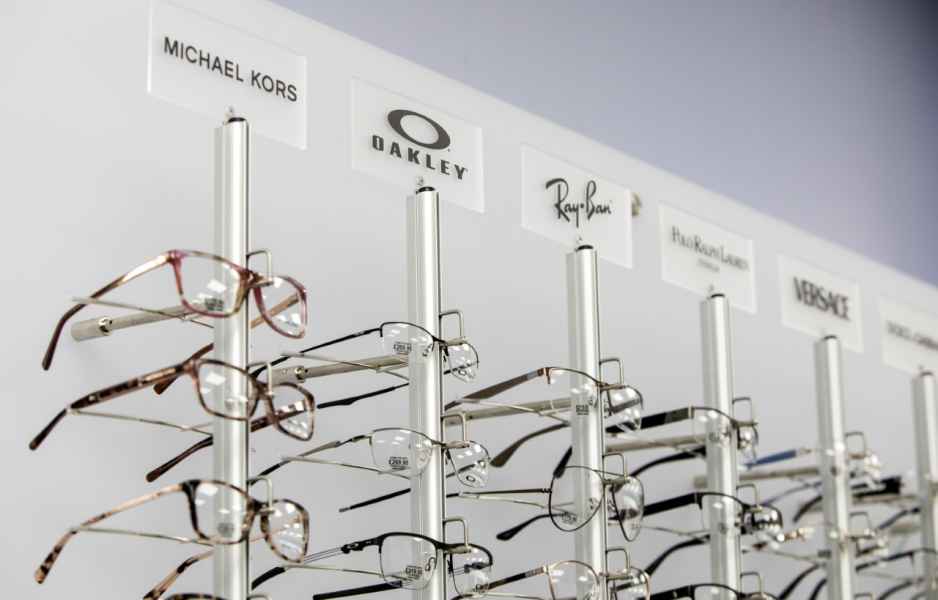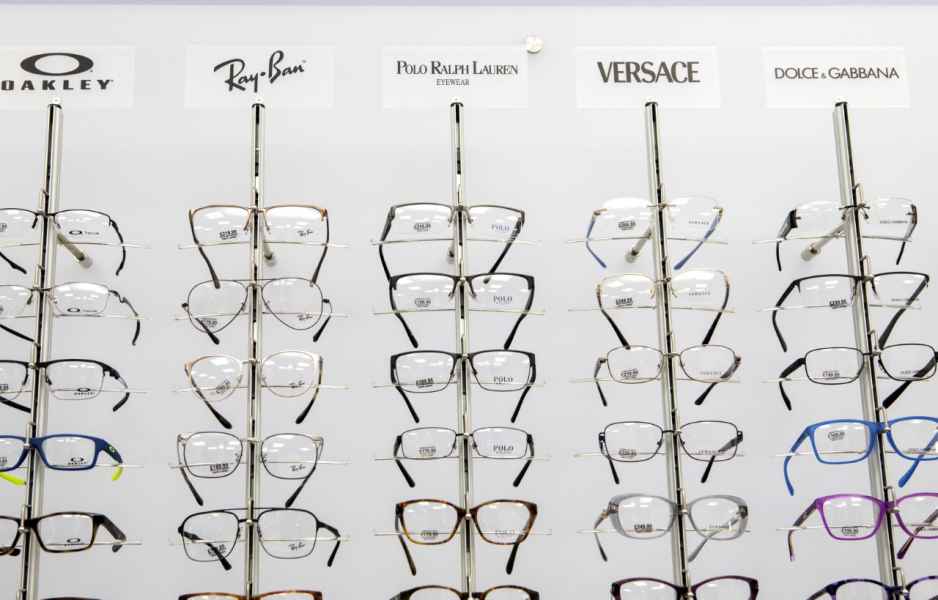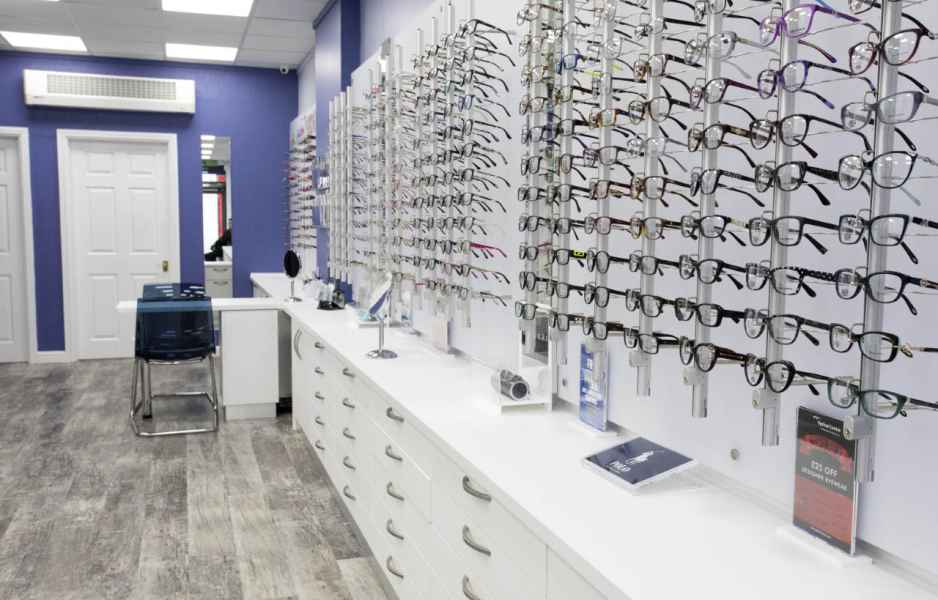The key to good vision is having regular eye examinations. They not only provide a valuable health check, but also enable you to see better and improve the quality of your day-to-day life.
NHS Eye Tests:
Throughout England and Wales, NHS eye examinations are available to all those who satisfy the qualifying criteria. If you qualify, the NHS will cover the cost of your routine eye examination at least once every two years.
NHS Vouchers:
As well as a free NHS eye examination, you may also be entitled to an NHS optical voucher which can be used to help towards the cost of your glasses or contact lenses. The higher and more complex your prescription, the higher the value of this voucher will be. Your optometrist will discuss your NHS voucher with you during your appointment and will explain how this can be used towards your new glasses or contact lenses.
Our Frame Selection:
Throughout our practices we offer a wide range of frames. You’ll be sure to find something that suits your style and makes you feel confident. With an NHS voucher you’ll be able to choose from our wide range of both plastic and metal frames priced at £22.00 and have these made up with single vision lenses to your personal prescription completely FREE of charge. Additionally, if you choose to upgrade on your frames, you can use your NHS voucher towards the cost and you will only have to pay the difference! For example, with an NHS voucher you can choose from our range of £39.95 frames and only pay £15.00, our £59.95 frames will be just £25.00, our £69.95 frames and pay only £35.00, and you can choose any of our £79.95 frames and pay only £45.00. Additionally, if you would prefer to choose from our wide range of fashion and designer frames that include brands such as RayBan, Oakley, Dolce & Gabbana and Versace, you will be able to put your NHS voucher towards the cost. Be sure to ask your optometrist if you have any questions about your NHS optical voucher.
Do I qualify for an NHS eye test?:
Use the table below to check if you would qualify for a free NHS eye examination and an NHS optical voucher.
| Free NHS Sight Test | NHS Optical Voucher | ||
| Age | Children aged under 16 | ✔ | ✔ |
| People aged 16, 17 & 18 and in full-time education (including home educated) or are on a Welsh Government Traineeship. | ✔ | ✔ | |
| Students aged under 19 and are in between academic years. | ✔ | ✔ | |
| People aged under 18 who are care leavers or in the care of local authority. | ✔ | ✔ | |
| Students aged under 19 and are in between academic years. | ✔ | ✔ | |
| People aged 60 and above. | ✔ | ✗ | |
| Income | People or their partners that are receiving one of the following:- | ||
| Income Support | ✔ | ✔ | |
| Income Related Employment & Support Allowence | ✔ | ✔ | |
| Income Based Job Seekers Allowance | ✔ | ✔ | |
| Pension Credit Guarantee | ✔ | ✔ | |
| Universal Credit | ✔ | ✔ | |
| Have a valid NHS TAX Credit exemption Certificate | ✔ | As Detailed on Exemption Certificate | |
| Eye Conditions | People registered as Sight Impaired or Severely Sight Impared. | ✔ | ✗ |
| People diagnosed as having Glaucoma. | ✔ | ✗ | |
| People over 40 who are the parent, child or sibling of someone with Glaucoma. | ✔ | ✗ | |
| People considered by an Ophthalmologist to be at risk of Glaucoma. | ✔ | ✗ | |
| People who are uniocular (very reduced vision in one eye). | ✔ | ✗ | |
| People who have been diagnosed as having Retinitis Pigmentosa. | ✔ | ✗ | |
| People with Complex Lenses under NHS guidelines. | ✔ | ✔ | |
| Ethnicity | Asian or Black ethnicities are at greater risk of developing eye conditions such as Glaucoma and are entitled to free NHS eye tests. | ✔ | ✗ |
| Medical | People diagnosed with Diabetes. | ✔ | ✗ |
| People who are Hearing Impaired. | ✔ | ✗ | |
| Other | A Prisoner that is on leave from prison. | ✔ | ✔ |
Ageing and Eye Tests:
Eye examinations are especially important as you get older. Old age is the highest risk factor in the development of eye conditions that cause visual loss. One in 12 people will develop a serious eye problem by the time they are 60 – and this increases significantly to one in 6 at the age of 75. Yet around six million older people are putting their general health, as well as their eyesight, at risk by not having regular eye examinations. As well as providing better vision with an up-to-date prescription, an eye examination can detect conditions such as glaucoma, age-related macular degeneration, cataracts, and diabetic retinopathy. If discovered early enough, many eye diseases can be effectively treated, but if ignored, could lead to blindness. It’s not just the increased risk of eye disease that particularly affects older people. Poor vision greatly increases the risk of falls. In fact, falls represent the most common and serious type of accident for this age group. This needless suffering could be avoided if more older people took advantage of the free eye examinations available under the NHS.







